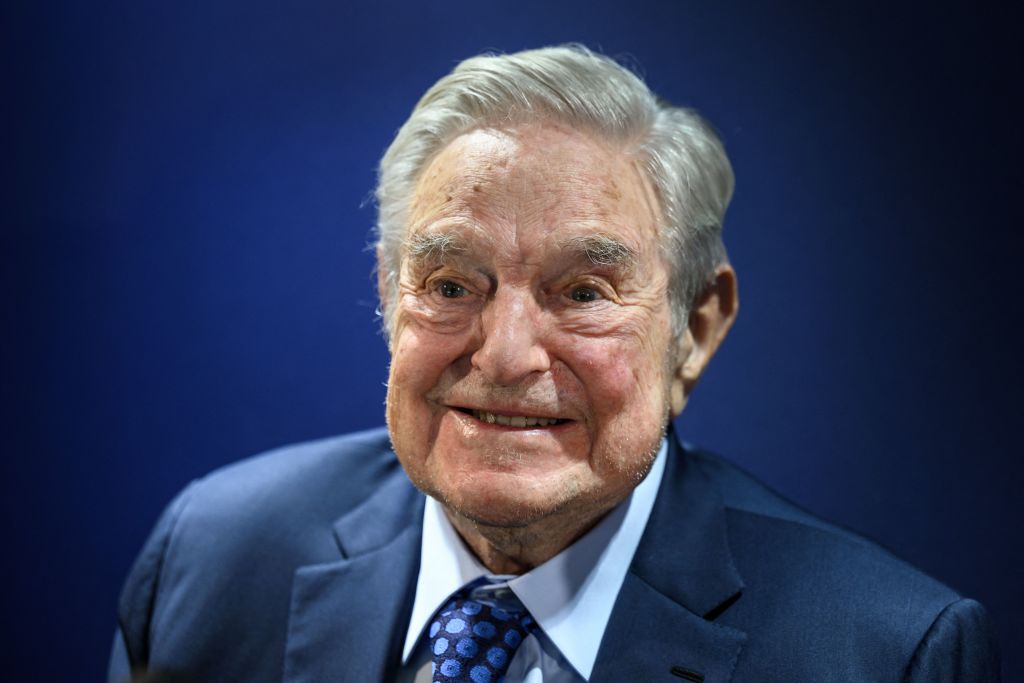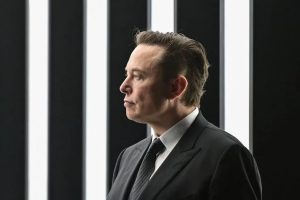Was Elon Musk antisemitic when he compared George Soros to Magneto, the Jewish Marvel Comics supervillain? Whatever one’s view on this question, Musk’s comments may be taken as a pointed marker of a time in which life and art are increasingly indistinguishable.
Musk claimed in a tweet to his 140 million followers that Soros is akin to the X-Men anti-hero Magneto, of comic book and movie fame. Like Magneto, Musk said, Soros “hates humanity” and “wants to erode the very fabric of civilization.”
Not flattering, but the claim that it’s antisemitic, because the atheist billionaire Soros, aged ninety, is ethnically Jewish, bears interrogation.
The comparison of Soros to Magneto is cutting. Some readers of The Spectator are doubtless familiar with the canon of X-Men, but for those who may be rusty on the details, Magneto, who is played in the movie version by Sir Ian McKellen, is the leader of a terrorist gang called the Brotherhood of Evil Mutants. It’s bent on world conquest.
What triggered Elon to compare Soros to Magneto? Soros had just dumped his remaining shares in Tesla (on which he apparently recorded a loss), which may have been taken by Musk as an insult or provocation. But in recent months, Musk has repeatedly drawn attention to how Soros’s money is being used to reshape the United States’ criminal justice system, which Musk claims has helped to elect progressive district attorneys with a laissez-faire attitude to antisocial behavior and recidivist criminality. This is blamed by many for helping to fuel an ongoing collapse in public order across major American cities.
The comparison of Soros to Magneto is cutting
This might be legitimate criticism if it was not for the Jewish angle. Musk did not just compare Soros to a supervillain in general (although even had he done, he would have faced the same criticisms) but to a specifically Jewish supervillain, who took up his career of evil following the death of his parents in the Auschwitz concentration camp.
Musk’s dump on Soros attracted predictable reactions, including from outfits themselves supported by Soros, such as the Institute for Strategic Dialogue, which has taken more than $1 million from George Soros’s Open Society Foundation. ISD claims that Twitter has become a cauldron of antisemitic hate speech since Musk bought it.
Jonathan Greenblatt, the chief executive of the today heavily progressive Anti-Defamation League (which Musk has said should drop the “Anti” from its name) declared Musk would embolden extremists “who already contrive anti-Jewish conspiracies and have tried to attack Soros and Jewish communities as a result.”
Was Musk within legitimate boundaries to note the curious parallel lives of real-life Soros and the fictional Magneto? Both are charismatic mavericks with huge talent and energy. They also both have extremely complex psychologies formed by their shared, highly traumatic experiences. In X-Men, Magneto sublimates his rage by plotting world domination. Soros, who spent the war in Budapest, acquits his survival by redistributing his colossal wealth in the pursuit of left-wing political causes, apparently dedicated to prevent anything like the Holocaust from ever happening again.
It’s his money, so even conservatives might think he’s entitled to spend it as he pleases. But it would be unreasonable to contend that nobody can criticize how he spends it — or wonder whether all of his decisions are informed by clear-eyed perceptions and sensible judgments, even if one chooses to assume his intentions are good. Indeed evidence that Soros’s philanthropic agenda is exacerbating social problems as opposed to addressing them is becoming increasingly hard to ignore.
Equally, the rush to accusations of antisemitism when anybody says anything bad about Soros may itself contribute to fueling antisemitic sentiments, since it not only puts Soros beyond any criticism, but wrongly implies his inviolable position is shared by all Jews.
Soros aside, there are ironically also comparisons between Magneto and Musk. Magneto’s superpower consists of an ability to telekinetically magnetize metal and hurl it at his enemies, not unlike Musk himself with his Falcon rockets and driverless cars.
Like Magneto, Musk remains unrepentant. A few days after his controversial tweet, Musk sarcastically withdrew his Soros comment, but not to grovel. He now claimed he’d been unfair to Magneto.
Musk, of course, was the inspiration of another Marvel smash hit, 2008’s Iron Man, starring Robert Downey Jr. But that film was made when he was still an uncontroversial technologist.
In his new, more political role as the most powerful opponent of the “woke left,” faced on this basis with the unremitting barrage of invidious accusations for which they are known, he has come to possess a more relatable superpower: namely not caring what they think.
As he told CNN last week, quoting another pop culture classic: “There’s a scene in The Princess Bride — great movie — where he [Montoya] confronts the person who killed his father. And he says, ‘Offer me money. Offer me power. I don’t care.’” Musk adds: “I’ll say what I want to say and if the consequence of that is losing money, then so be it.”
This article was originally published on The Spectator’s UK website.


















